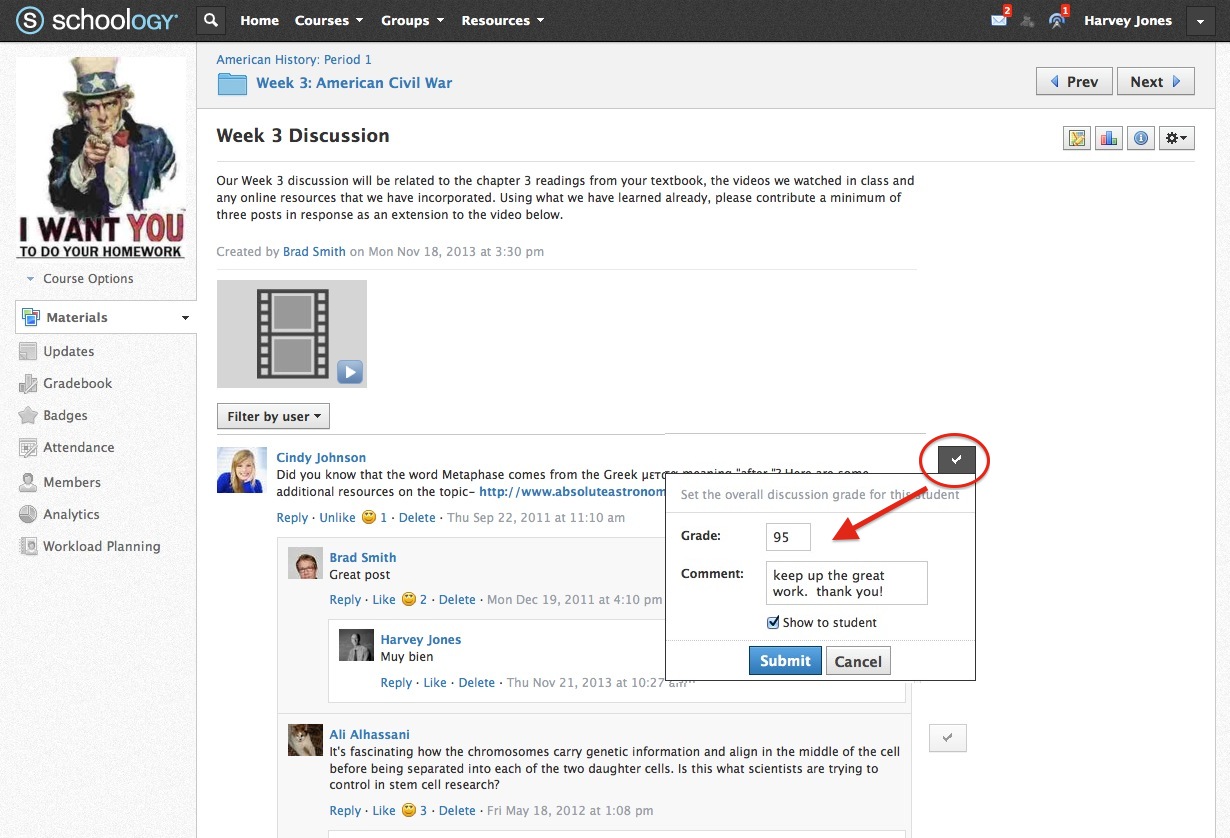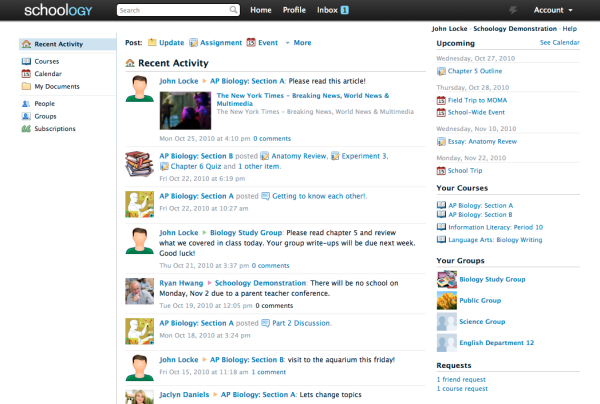Cool for Schoology: 8 Things to Know
Earlier this week, the Delaware Department of Education announced a new contract with Schoology, a Learning Management System (LMS) that helps teachers personalize instruction and share lesson plans. Here are eight things you should know about Schoology as the LMS launches statewide.
1. Schoology is already in Delaware—and teachers love it!
Six Delaware districts that comprise the BRINC Consortium are currently using Schoology to blend traditional and online learning and close achievement gaps. Brandywine, Indian River, New Castle County Vocational-Technical, Colonial, Appoquinimink, and Caesar Rodney school districts are all members of the BRINC Consortium.
“I’m really amazed at how fast it has changed my classroom,” said Laura Bossert, a fourth grade teacher who has been using the LMS for just a month at Carrie Downie Elementary School in Colonial School District. “What I love best is that my students can pace their own learning and can showcase their mastery of concepts using their own learning style.”
2. Schoology allows access to course materials anytime, anywhere, for teachers, students, and parents.
Access to Schoology means students and teachers have access to course material anytime and anywhere they have an internet connection, including on snow days, after school, and sick days. Lost a worksheet or project outline? Not a problem for students whose teachers post course materials on Schoology.

Students and teachers can access course material anytime and anywhere they have an internet connection.
3. Schoology offers professional development and peer collaboration opportunities for teachers, including sharing lesson plans and best practices.
In Delaware, Schoology will replace the learning management system that teachers were using to access professional development opportunities offered by the state. All districts will now have access to Schoology for professional development opportunities.
4. Delaware teachers can decide how to use Schoology in their classrooms.
“This is a tool the state is making available to teachers, and we expect that once they dive in, they will find countless creative ways to deepen and extend students’ learning,” said Michael Watson, Delaware’s chief academic officer.
5. Schoology works on any device that has an internet connection.
Users can access Schoology directly from the web, or via the Schoology apps for iOS, Android, and Amazon devices.
6. Schoology is the fastest-growing LMS in the K-12 market.
Schoology is currently used by more than 8 million students across 60,000 K-12 schools and universities around the world. The DOE projects that districts serving about 40,000 Delaware students will begin using the system in the 2015-2016 school year.
7. Teachers and students can get the most out of Schoology by using these features:
• Recording and watching video lessons/projects
• Incorporating third-party apps
• Building standards-aligned assessments
• Utilizing the online gradebook to provide rapid and ongoing student feedback
8. A free version of Schoology is available to all educators to begin using in classrooms.
If you can’t wait to get started with Schoology, visit Schoology online to sign up for the free version for access to some of Schoology’s best features!
Do you use Schoology in your classroom? Let us know what you think, and stay tuned for a post next week from a Delaware teacher who has spent the last two years using Schoology in his classroom.
Related Topics: Delaware, Delaware school districts, personalized learning, Schoology

